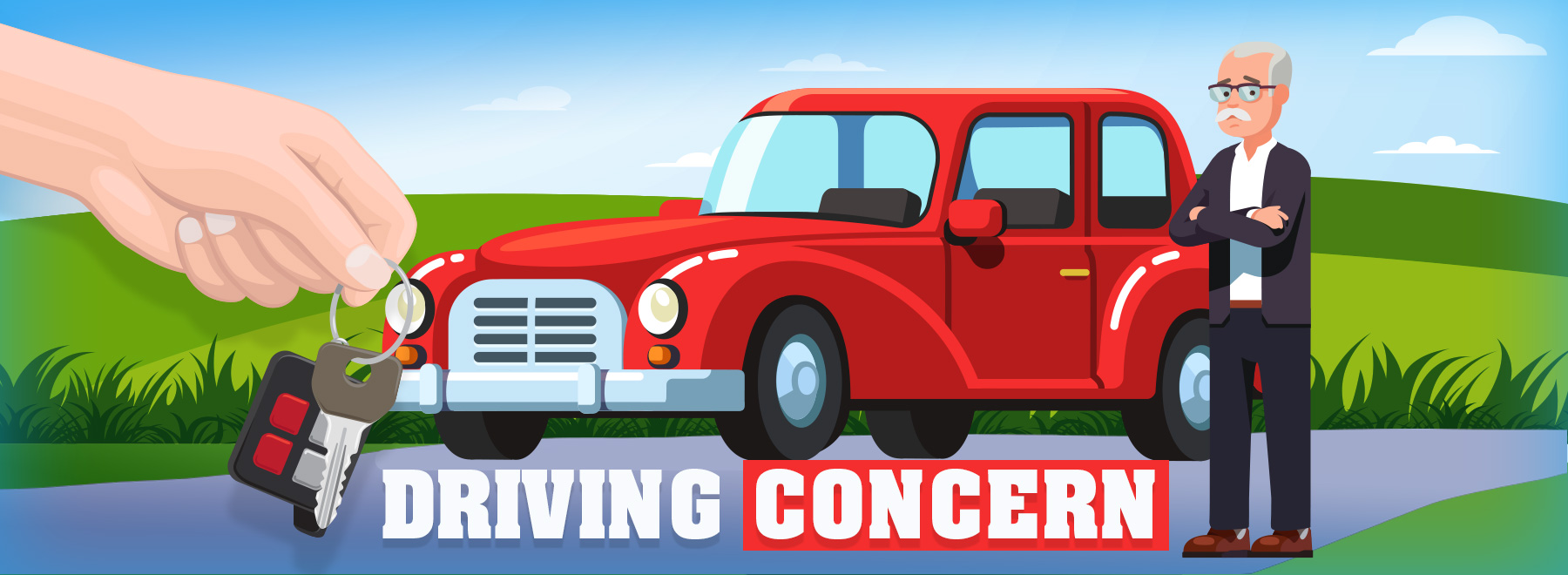When taking away keys, don’t drive loved ones into a corner
For many Americans, surrendering their car keys is like going to jail. Imagine what it’s like for someone who started driving when Harry Truman was president and Nash Ramblers roamed the earth.
But that feeling of freedom lost is a prospect many aging drivers have to face eventually – especially those whose mental sharpness has been dulled by progressive conditions such as dementia.
Whatever their condition, their pride and sense of identity remain intact, in many cases making it difficult for loved ones to persuade them to give up their keys.
There are ways to make this bumpy ride smoother.

“Families ask me to do it,” said Dr. Lyssa Weatherly, an assistant professor of medicine and an internal medicine specialist in the Division of Geriatrics and Gerontology at the University of Mississippi Medical Center. “They don’t want to be the bad guy. That’s 100 percent OK. I’ll be the bad guy.
“A lot of times I have patients who won’t come back and see me because they are so mad at me.”
Still, Weatherly can often talk patients into giving up the car keys by appealing to their compassion, an approach their loved ones could also take.
“I ask them, ‘You don’t want to hurt someone else, do you? A child running out in the street after a ball?’” Weatherly said.
For patients with dementia, injuring others, and themselves, is a risk because of their slowed reflexes and diminished concentration.
“It’s very rare that someone shouldn’t drive based on age alone,” Weatherly said. “As long as your cognitive abilities and physical abilities are OK, age should not matter.”
In fact, a report issued by the National Highway Traffic Safety Administration in 2019 showed that older drivers were more likely to wear seat belts than those under age 65, and that fatality rates for drivers age 65 and older have been lower than younger drivers every year from 2008 until 2017, the most recent year the agency examined.
“Whatever your age, though, you shouldn’t drive if, say, you have trouble with the steering wheel because of arthritis,” Weatherly said, “or if physical damage from a past stroke interferes with your ability to work the pedals.
“Still, the biggest problems occur with people who have cognitive issues.” That is, problems with perception, memory, judgment and reasoning – symptoms of Alzheimer’s disease, an incurable dementia. “I would say 99 percent of the time it’s because of those issues.”

How to get someone to stop driving is a challenge Sue Ann Meng deals with “practically on a daily basis,” she said.
“It’s like cutting off their arms and legs,” said Meng, a geriatrics social worker in The Memory Impairment and Neurodegenerative Dementia (MIND) Center at UMMC, which offers outpatient treatment for Alzheimer’s disease while also searching for a cure. “It’s their way of life, their independence.
“Usually it’s the families who call and say, ‘I don’t think he’s safe,’ or ‘How do I get the keys away from her?’”
Often, the loved one in questions gets “extremely angry and upset,” Meng said. “Sometimes it comes down to just saying, ‘no,’ if you believe they are dangerous.”
To find out if that’s the case for sure, both Meng and Weatherly said a first step can be to drive with them on some of their usual errands and note whether they have control of the car, pull up too far into an intersection, stop too soon or drive too close to other cars. Also: Do they become easily distracted? Do they hit curbs when making right turns and backing up? Do they drive too fast or too slow?
And do they remember why they’re in the car?
“I know of one lady who followed her daughter to get her brakes fixed,” Meng said. “She just turned around and went home because she didn’t know where they were going.”
So it’s the family who becomes the judge, or at least the court of first resort.
“I tell them if they have concerns to let me know,” Weatherly said.
Some patients realize it’s in their “best interest” to give up driving, she said. But others may forget that they agreed do so, or that they even had that conversation.
Sometimes the only answer is a formal evaluation that may result in a revocation of the driver’s license. This may start with a cognitive assessment in the clinic.
“If the patient’s score is very low, then we know for sure this is a problem,” Weatherly said. “But if they do OK and you’re still not sure, you can ask them to take a formal test.”
It’s administered at the Driver Service Bureau of the Mississippi Department of Public Safety.
“Some patients are afraid to do that, though,” Weatherly said. “Instead, I can refer them to an occupational therapist at Methodist Rehab.”

At Methodist Outpatient Neurological Rehabilitation in Flowood, Ashlee Ricotta, an occupational therapist and a certified driving rehabilitation specialist, tests a driver’s skills in a Driving Rehabilitation Program. Ricotta takes referrals from doctors, including Weatherly.
“We see all aging populations,” Ricotta said, “and I have met with some of [the UMMC] physicians who observed the evaluation themselves.”
Medicare does not pay for the test if the patient has dementia, Meng said.
“But a lot of my families choose to do it out-of-pocket anyway because they want someone else with authority to tell their family member that they can’t drive anymore.”
The results of that evaluation also can lead to a formal cancellation of the patient’s license, Weatherly said.
“There’s a form I fill out [from the Department of Public Safety], and then fax it to them.”
Just because someone doesn’t have a driver’s license doesn’t mean he or she stops driving, necessarily.
“If you’re going to take the keys away, you’re going to have to take the car away, too,” Weatherly said. “If you keep the car there at their house, they’re going to drive it, especially if they live alone.”
Weatherly knows of one woman whose family removed her car, “so she walked and hitchhiked to town and bought a new one.”
Such a case underlines the point that driving is almost like breathing to many people, especially as they age, Meng said.
“That’s something that families need to plan for: How are you going to provide transportation for them?
It’s not just about taking them to the store. Part of it is that the loved one needs to get out and see people.
“This has been the only way they could get around, and the only way they can feel they are still themselves.”
To help families handle this delicate issue, the American Association of Retired Persons offers a free online seminar, “We Need to Talk.” It offers tips for starting this conversation, as well as ways to meet your loved one’s transportation needs.
The National High Traffic Safety Administration also has suggestions for older drivers and their families.
It can’t be easy to tell the person who taught you how to drive that he or she no longer should. Your parent or grandparent may resent it, but may also realize, as many of Weatherly’s patients have, that some things are more important than driving: relationships, for one.
“If they say they don’t want to see me anymore, I refer them to one of my [clinical] partners,” Weatherly said. “My partners aren’t going to let them have the car keys either.
‘So sometimes they may come back to me.”
The above article appears in CONSULT, UMMC’s monthly e-newsletter sharing news about cutting-edge clinical and health science education advances and innovative biomedical research at the Medical Center and giving you tips and suggestions on how you and the people you love can live a healthier life. Click here and enter your email address to receive CONSULT free of charge. You may cancel at any time.



